Weekly Market Insights - 6th March 2024
Let's dive into what's been happening in the world of investments this week.

Here's what I'll be covering in today's newsletter:
- A strong week for Equities
- UK house prices surging?
- Learning from Nigeria's economic issues
- The inflation data everyone's been waiting for

Current Market Fear & Greed
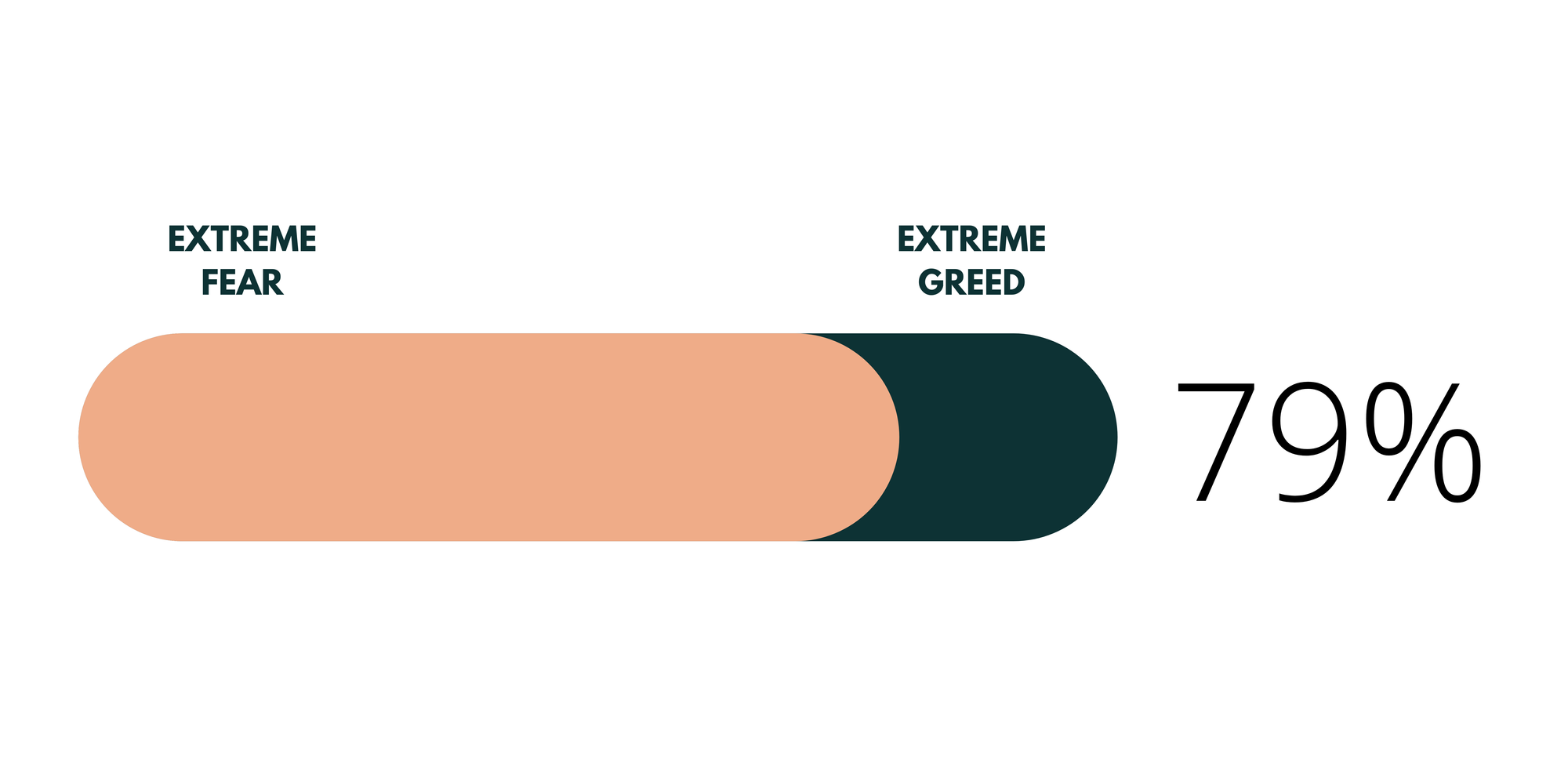
The current reading of 79% from CNN indicates a high level of confidence from investors. This has increased 2% from last week.
The stock market is a barometer of investor sentiment. When investors feel greedy, the market tends to rise; when they feel fear, it tends to fall.
Market Insights
Welcome to the Market Insights newsletter. Here, I'll share easy-to-understand updates on what's happening in the world of finance and business. From what's going on in global markets to interesting activity in the UK housing market, I've got you covered with all the important details.
1. A strong week for Equities
This week, the stock market performed quite well. All of the biggest global indices had positive returns. This shows that not just the biggest companies, but many different types of businesses are doing well in the market. A big reason for this is that the bond market is pretty stable right now. Bonds are like loans, and when their prices don't change much, it means things are feeling steady in the economy. There's less worry about inflation or other big economic issues.
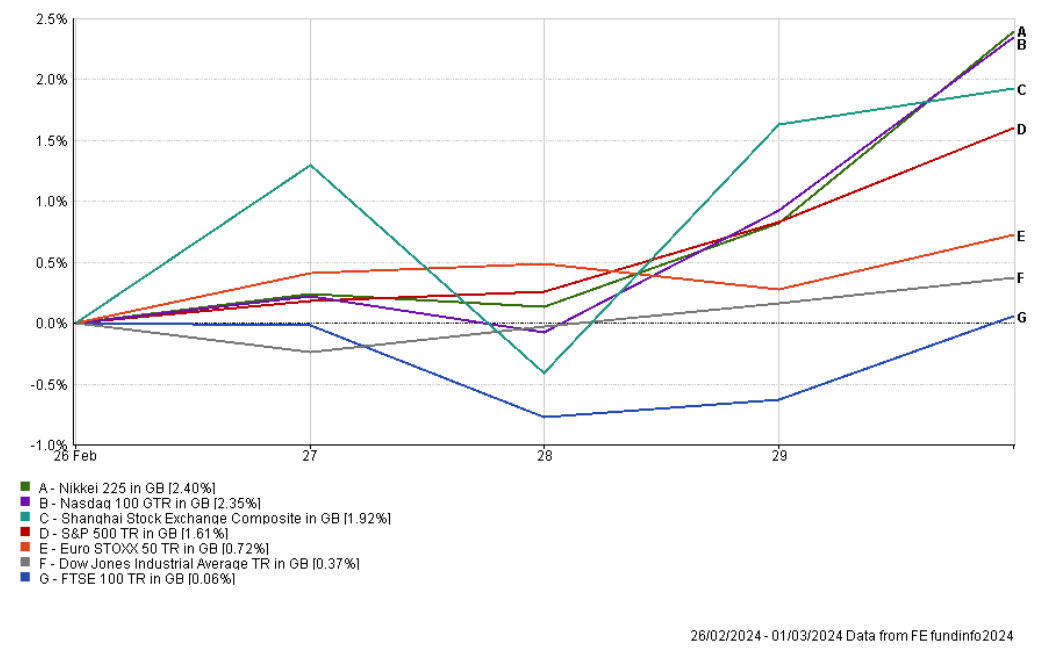
This steadiness is good for companies because they can plan their money matters with more certainty. It also makes people want to invest in stocks more because they feel it's a safer time to get in and they might get better returns than when there's a lot of ups and downs in the market.
2. UK house prices surging?
In the UK, the mortgage market is showing interesting trends. Although there hasn't been a cut in the official base rate set by the Bank of England, mortgage lenders have independently lowered their rates. This move has led to an increase in housing market activity. However, it's crucial to note that this doesn't necessarily predict a rise in actual sale prices of houses. The ‘surge’ reported by indices like Rightmove, which shows a 0.9% increase, is based on asking prices, not the final sale prices. This is important as asking prices can be more optimistic than what buyers are actually willing to pay.
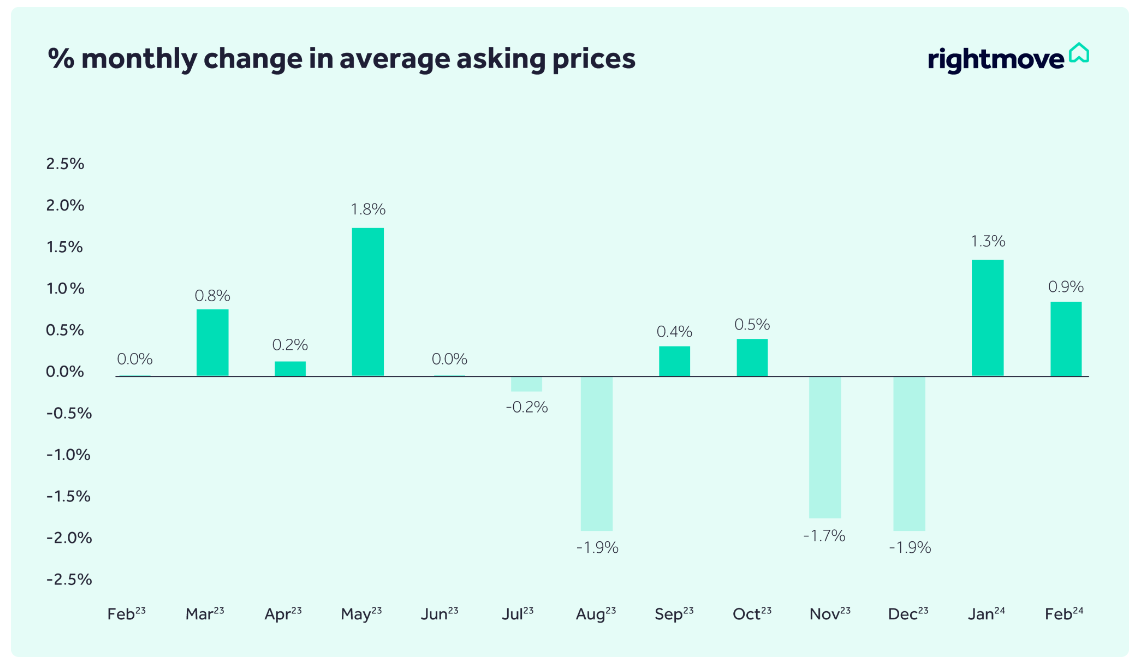
3. Learning from Nigeria’s economic issues
Nigeria has been going through some tough economic changes. The government tried to make the economy better by doing things like removing the fixed exchange rate with the US dollar and stopping fuel subsidies. These changes were meant to help, but they've led to problems. Prices for things like food have gone way up, and Nigeria's money, the naira, has lost a lot of its value. To try and fix this, Nigeria's Central Bank raised the interest rates really high, but it's still a big challenge to get the economy stable.
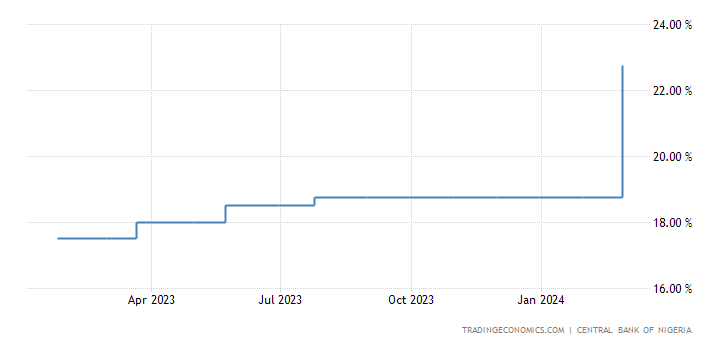
These problems show how hard it can be for a country to change its economic policies. The timing was also tough because when global prices for things like oil were high, Nigeria, which sells oil, did well. But then, when these prices dropped, and the world's economy got tighter, Nigeria faced even more problems. Now, the government is trying to fix things by controlling how much its currency is worth and being careful with how it manages its money. They've even started using cryptocurrencies in banks, but they're also worried that this might make the naira's value more unstable.
4. The inflation data everyone’s been waiting for
In the US, there's been some good news about inflation. The Personal Consumption Expenditures (PCE) data, which tracks how much people are spending, shows that inflation is slowing down. The PCE price index increased by only 2.8% over the year up to January, which is the slowest it's gone up since March 2021. This information makes people think that interest rates might be lowered later in the year, which is good for anyone wanting to borrow money or invest.
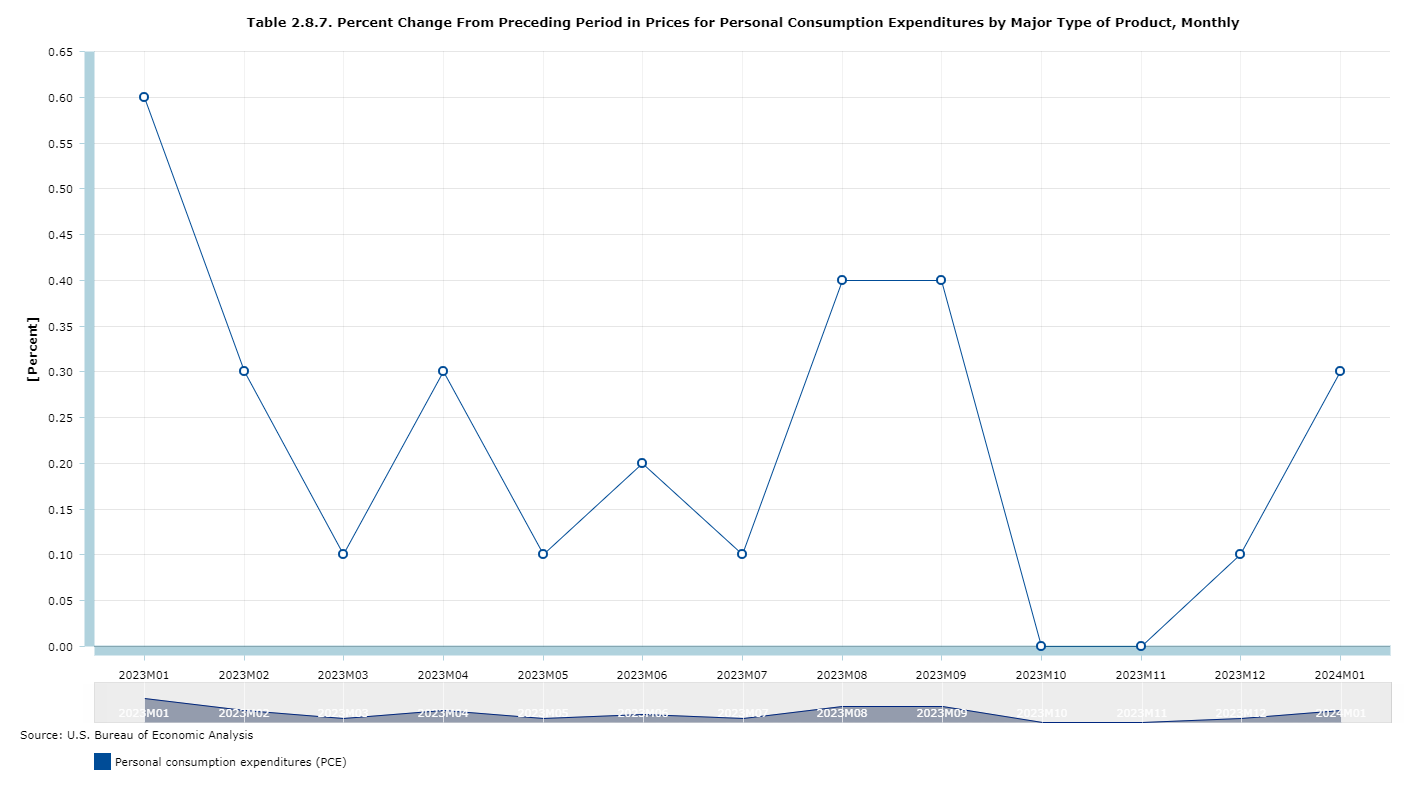
However, figuring out what's happening with inflation isn't always easy. While the yearly rate of inflation has slowed down, the month-to-month figures still show that prices are going up quite a bit. If things keep improving, the Federal Reserve could reduce interest rates later this year. But, they also say we need to be careful and watch how the economy is doing. So, everyone's waiting to see what the Federal Reserve will decide based on all this data.
In today's fast-paced financial world, just keeping up with the latest trends isn't enough; it's about leveraging them to your advantage. Understanding these shifts is one thing, but the real impact comes from applying this knowledge effectively to your assets. This is where my expertise comes in. Why not have a chat with me, at no charge, to discuss how we can turn these insights into intelligent, personalised strategies tailored for your investment goals? It's not just about tracking the market—it's about actively shaping your financial future.


